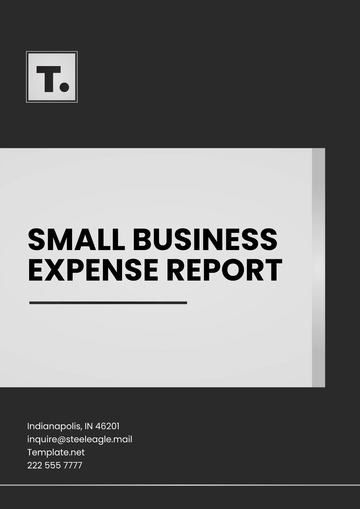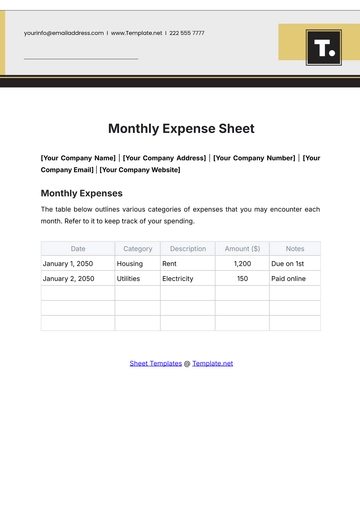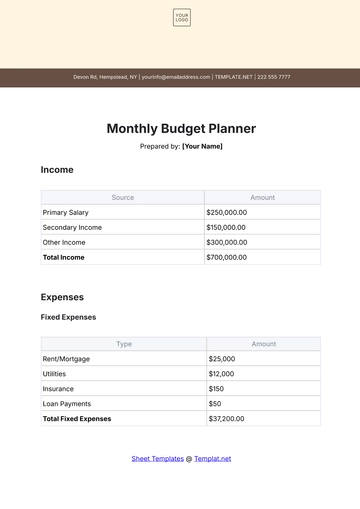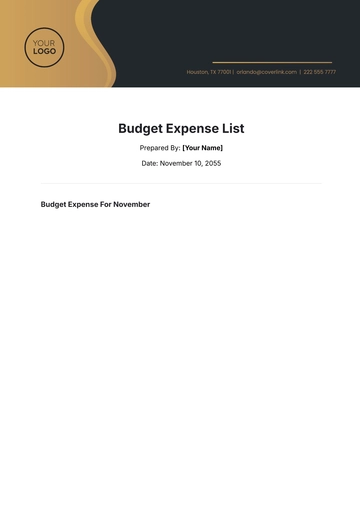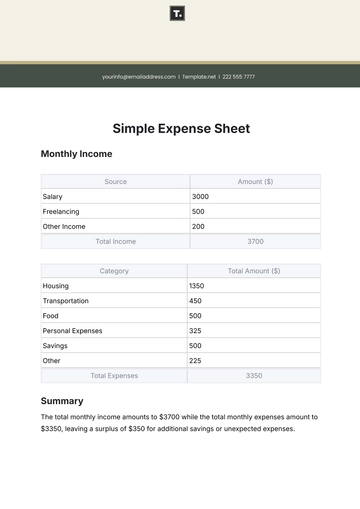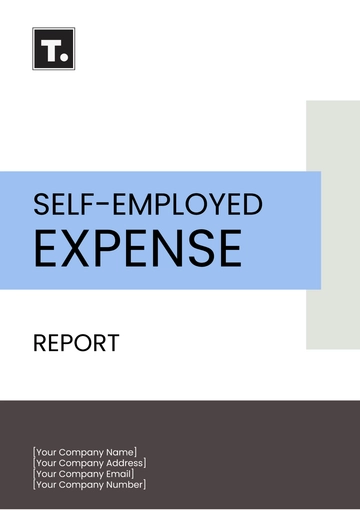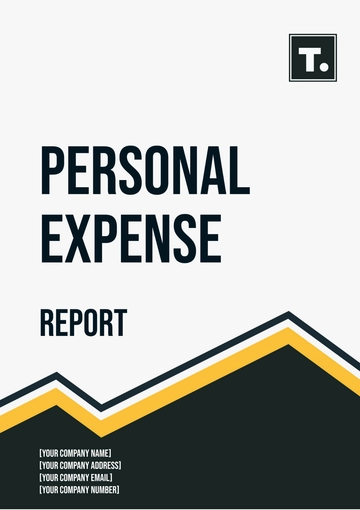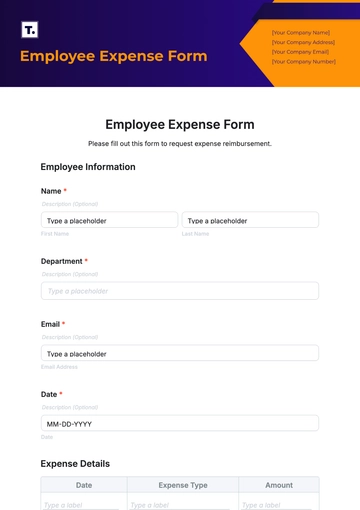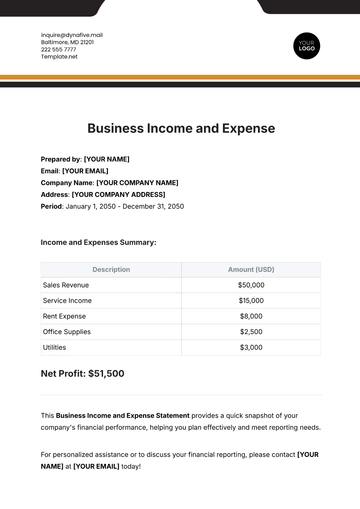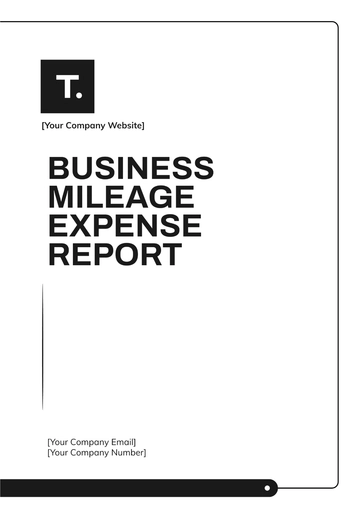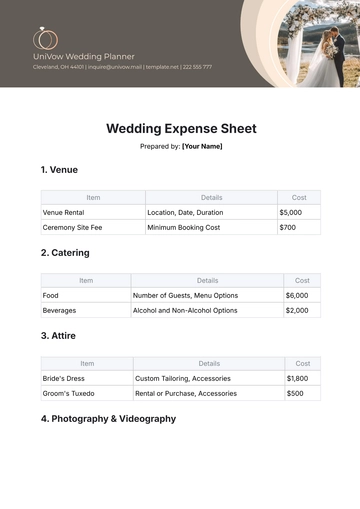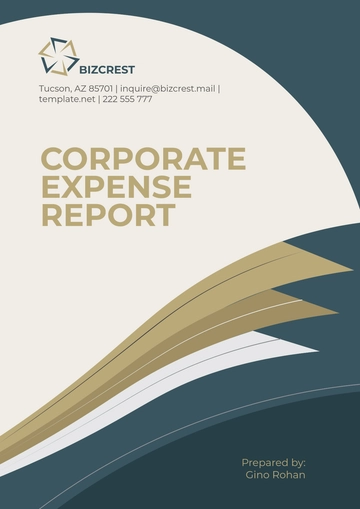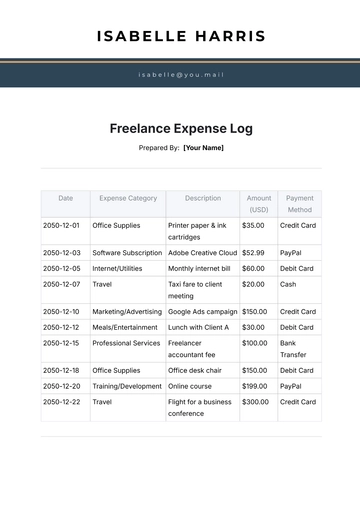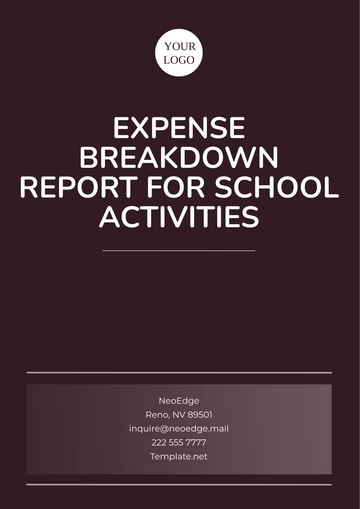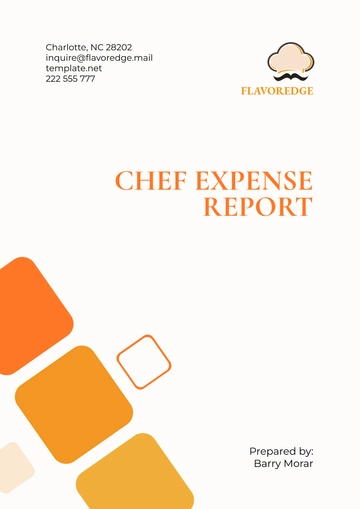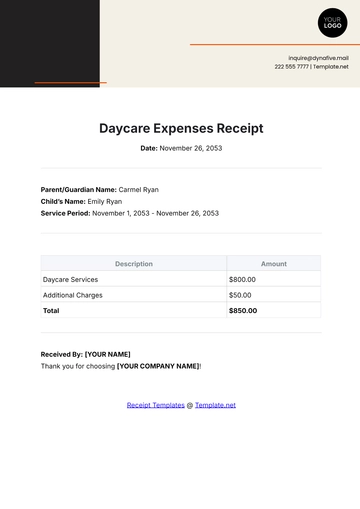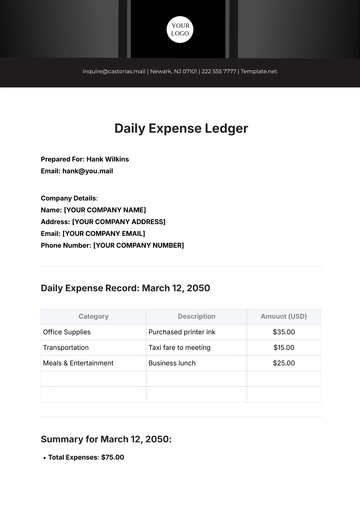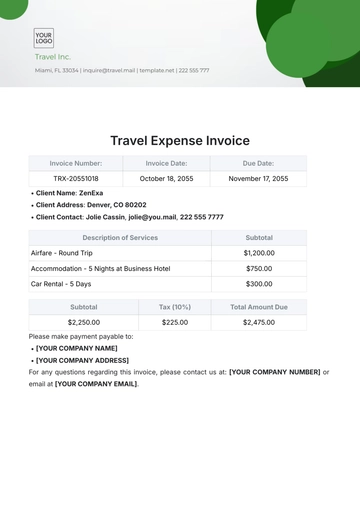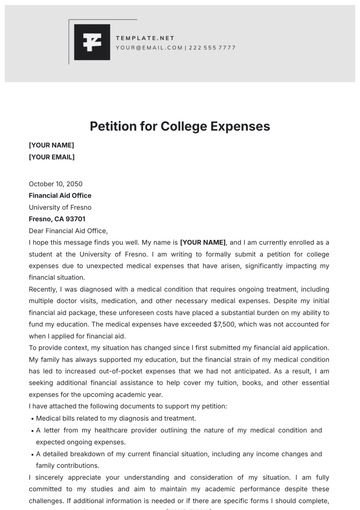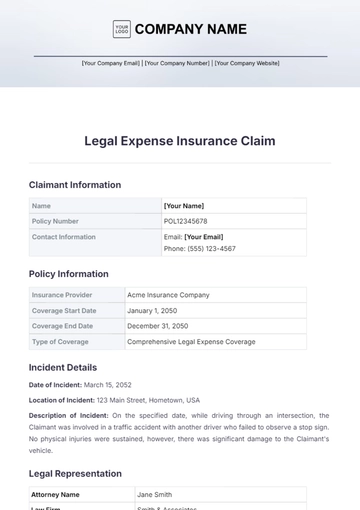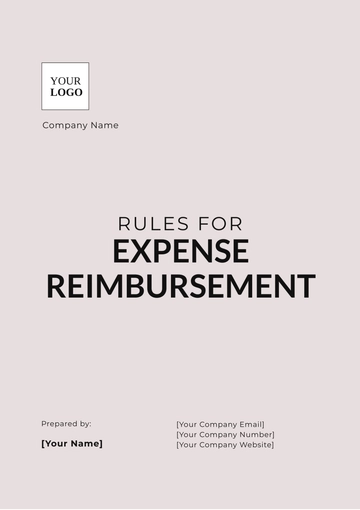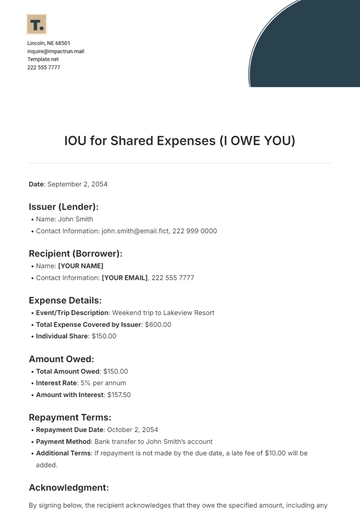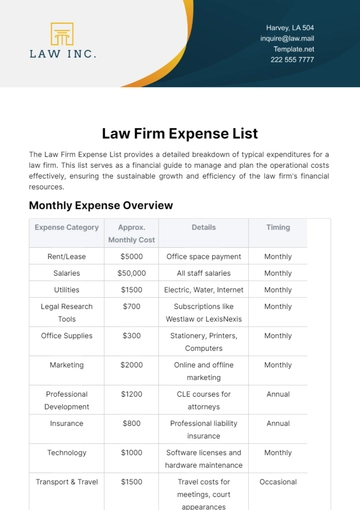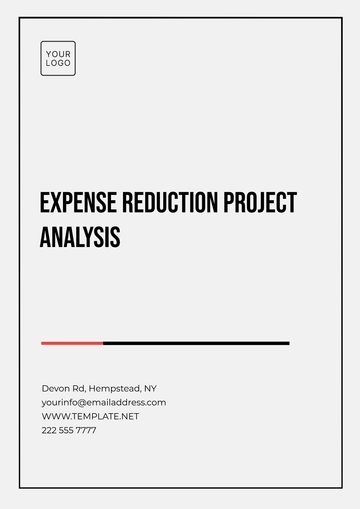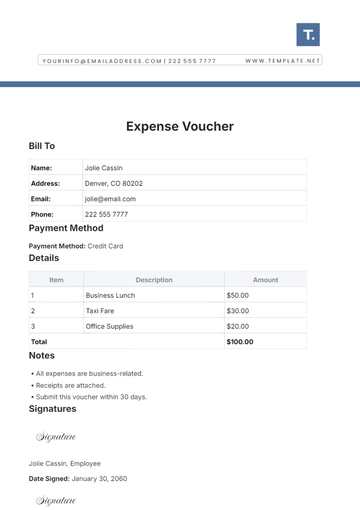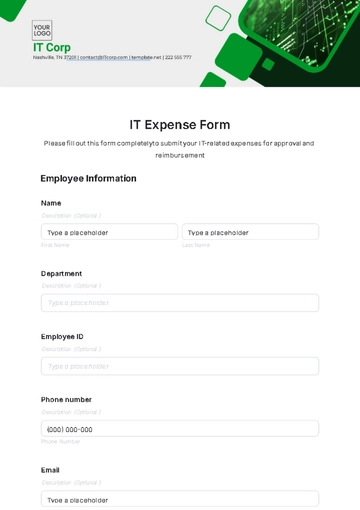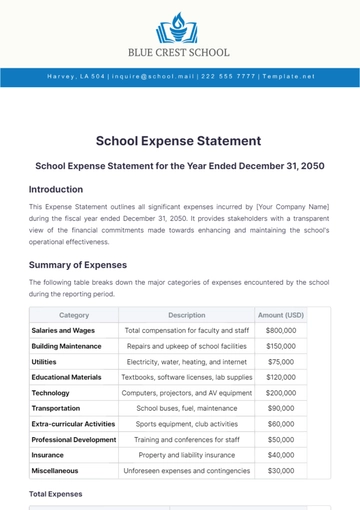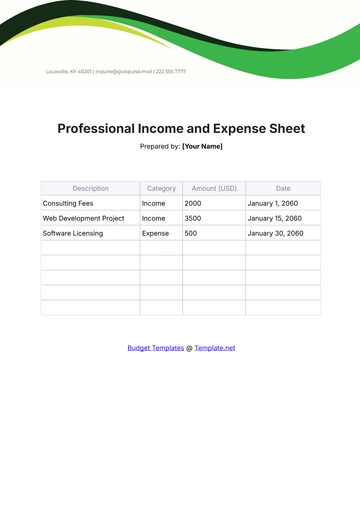Free Vehicle Expense Report
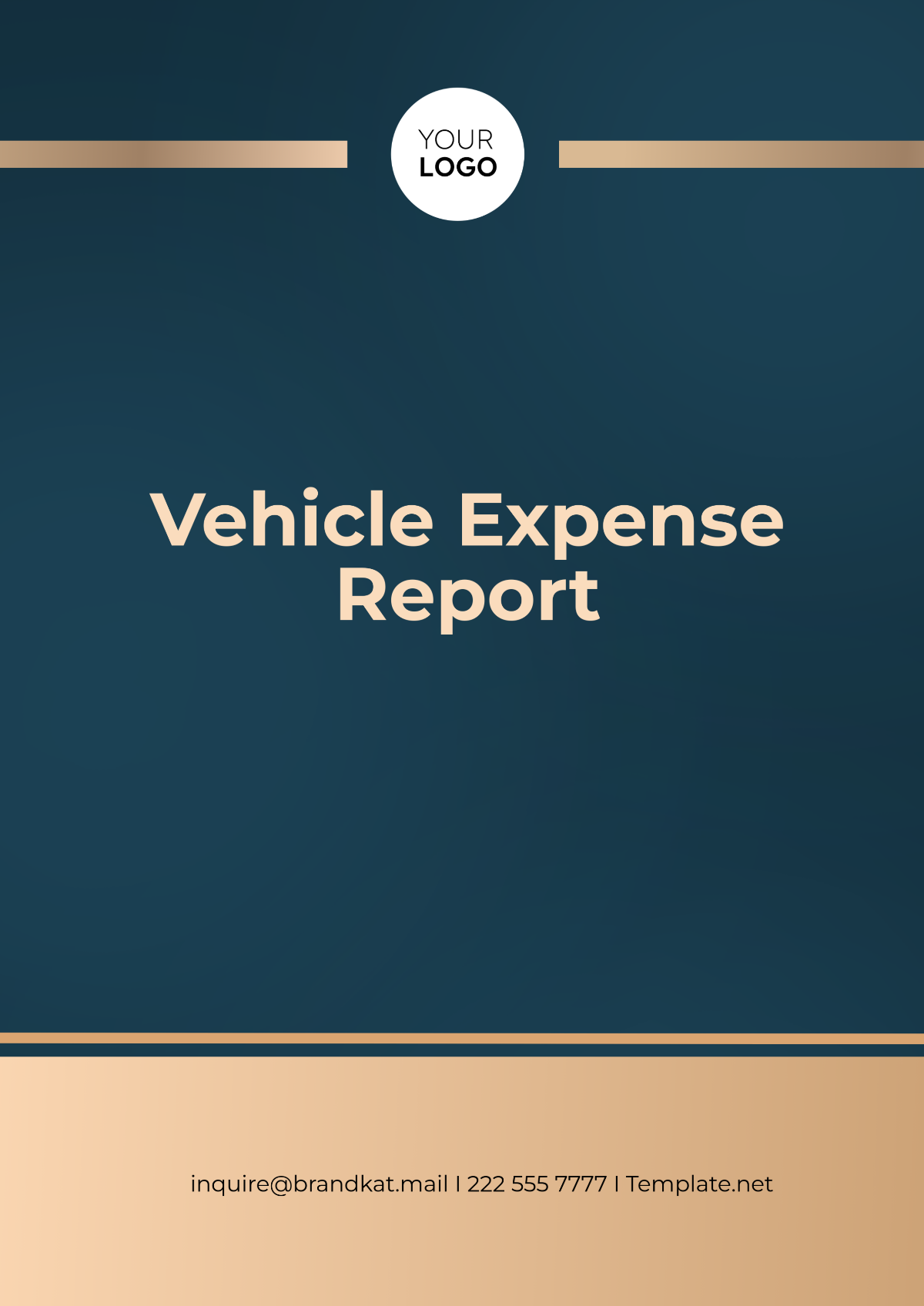
Prepared by: [Your Name]
Company: [Your Company Name]
Date: [Date]
1. Introduction
This report provides a comprehensive analysis of the costs associated with the ownership and operation of the organization's vehicle fleet. It covers key expenditure categories, including fuel, maintenance, insurance, and other operational costs. The goal is to offer a detailed overview of vehicle-related expenses, identify potential areas for cost optimization, and guide decision-making to improve financial efficiency in fleet management.
2. Fuel Expenses
2.1 Overview
Fuel expenses represent a substantial portion of total vehicle operating costs. Given the volatility in fuel prices, it is essential to continuously monitor fuel consumption patterns and expenditures. This section provides a breakdown of fuel consumption and associated costs over the reporting period, highlighting areas for potential fuel efficiency improvements.
2.2 Fuel Consumption Analysis
The following table summarizes the average fuel consumption per vehicle type and the corresponding fuel cost:
Vehicle Type | Average Fuel Consumption (liters/100 km) | Total Fuel Cost (USD) |
|---|---|---|
Sedan | 8.5 | 23,000 |
SUV | 11.0 | 32,000 |
Truck | 15.0 | 45,000 |
Key Insights:
Trucks have the highest fuel consumption, leading to a disproportionate share of fuel expenses.
Optimization Strategies: To mitigate these high costs, consider route optimization, fuel-efficient driving practices, and exploring alternative fuel options.
3. Maintenance Costs
3.1 Overview
Maintaining a fleet of vehicles is crucial to ensure their performance, safety, and longevity. Routine maintenance helps prevent costly repairs and ensures the vehicles are reliable and safe for operation. This section details the maintenance expenses incurred by the fleet, broken down into categories.
3.2 Maintenance Expenditure Breakdown
Category | Total Cost (USD) |
|---|---|
Routine Servicing | 28,000 |
Repairs | 15,000 |
Parts Replacement | 10,000 |
Key Insights:
Routine Servicing constitutes the bulk of maintenance costs. Investing in preventive maintenance strategies can reduce the likelihood of unplanned repairs and parts replacements.
Optimization Strategies: Establish a more robust preventive maintenance schedule, track vehicle health proactively, and monitor repair trends to identify potential for cost reduction.
4. Insurance Expenses
4.1 Overview
Insurance is a mandatory expense to mitigate risks associated with vehicle ownership and operations. It is essential to regularly review and adjust insurance policies to ensure adequate coverage while exploring cost-saving opportunities.
4.2 Insurance Expenditure Breakdown
Vehicle Type | Annual Premium (USD) |
|---|---|
Sedan | 5,000 |
SUV | 7,000 |
Truck | 9,000 |
Key Insights:
Insurance premiums are influenced by vehicle type, usage, and safety features.
Optimization Strategies: Explore opportunities for bundling insurance policies, negotiate better terms with providers, and assess the possibility of adjusting coverage based on actual vehicle usage to reduce premiums.
5. Additional Expenses
5.1 Overview
In addition to fuel, maintenance, and insurance, various ancillary costs contribute to the overall vehicle operation expenditure. These include tolls, parking fees, and administrative costs.
5.2 Additional Expenditure Breakdown
Expense Category | Total Cost (USD) |
|---|---|
Tolls | 4,000 |
Parking | 3,000 |
Administrative Fees | 2,000 |
Key Insights:
While secondary, these costs can accumulate over time and affect the overall budget.
Optimization Strategies: Implement efficient route planning to reduce toll costs, consider alternative parking solutions, and streamline administrative processes to minimize fees.
6. Conclusion and Recommendations
This Vehicle Expense Report provides an in-depth analysis of the major operational costs associated with the organization's vehicle fleet. The primary areas of expenditure are fuel, maintenance, and insurance. However, opportunities exist to optimize these costs and improve fleet management efficiency.
Key Recommendations:
Fuel Optimization: Adopt fuel-efficient driving practices, implement route optimization, and explore alternative fuel solutions to reduce fuel consumption, particularly for trucks.
Maintenance Management: Focus on preventive maintenance to minimize unplanned repairs and parts replacements. Implement fleet monitoring systems to track vehicle health.
Insurance Cost Reduction: Review and negotiate insurance policies to ensure competitive premiums, consider bundling policies, and evaluate coverage based on vehicle usage.
Cost Control on Additional Expenses: Streamline toll payments and parking arrangements, and review administrative processes to reduce associated fees.
Next Steps:
Future reports should continue to monitor these key areas, track the effectiveness of implemented cost-reduction strategies, and update the organization on changes in the cost structure.
By focusing on these strategies, the organization can achieve significant cost savings, improving the financial sustainability of its vehicle fleet operations.
- 100% Customizable, free editor
- Access 1 Million+ Templates, photo’s & graphics
- Download or share as a template
- Click and replace photos, graphics, text, backgrounds
- Resize, crop, AI write & more
- Access advanced editor
The Vehicle Expense Report Template from Template.net offers a fully customizable and editable solution for tracking vehicle-related expenses. Easily modify fields to suit your needs, and edit the template in our AI Editor Tool for a seamless experience. Simplify your financial reporting and ensure accurate records with this user-friendly, professional Template.
